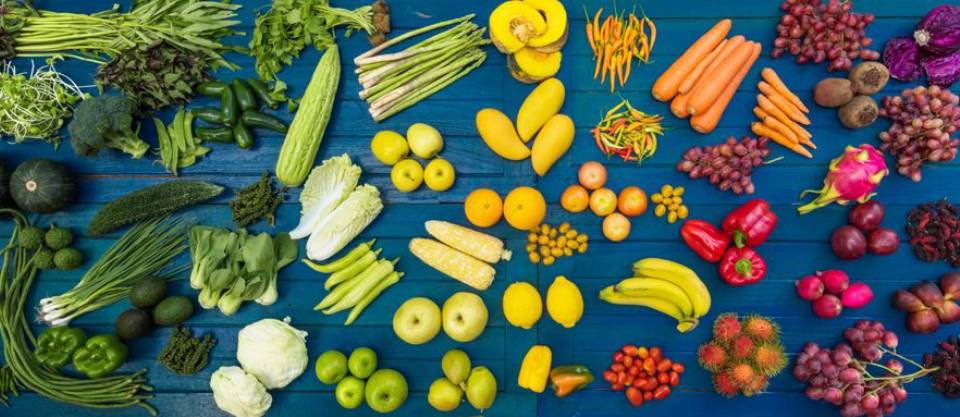Add Color to Your Diet and Improve Colon Health – Blog, Colors do more than brighten our walls and wardrobes. The shades and hues that make up our diet can go a long way in enhancing digestive health. While red meat and white milk have their benefits and disadvantages, the best way to diversify the palette of your palate is with an array of fruits and vegetables.
Not only will adding color to your diet enhance the way your colon functions, it can also reduce your risk of colon cancer. Let’s take a closer look at what types of colors you can add and the benefits that they offer.
orange and yellow fruits and vegetables for digestive health
Cantaloupe, carrots, mangoes, and spaghetti squash all contain the antioxidant alpha-carotene. This element not only benefits your digestive health, it also improves your skin, immune system, and your eyes. Research has found that people with increased levels of alpha-carotene in their blood showed lower chances of developing colorectal, stomach, and pancreatic cancer.
Red fruits and vegetables for colon health
Vitamin C and Vitamin B9, or folate, contain flavonoids and lycopene. Red fruits and vegetables like cranberries, tomatoes, and beets are excellent sources of these vitamins. In fact, lycopene provides these foods their red color. They are also antioxidants that help your memory, heart health, and reduce inflammation. They have also been effective in reducing the risk lung, prostate, breast, and colorectal cancer.
Blue and purple fruits and vegetables for gastroenterology health
Macular degeneration, as well as colorectal and esophageal cancer can all be reduced with a powerful antioxidant called anthocyanins. Anthocyanins are rich in foods like eggplant, blueberries and grapes. Like lycopene creates the red in red fruits and vegetables, anthocyanins provide blue and purple foods their color.
Green fruits and vegetables digestive tract benefits
A diet filled with fruits and vegetables can’t be complete without something green. Leafy green vegetables provide calcium, as well as vitamins A and K. Green vegetables like broccoli and spinach reduce blood clotting and improve bone health. The darker green the vegetable, the more beta-carotene it contains. Beta-carotene is a powerful anti-oxidant that boosts your immune system and can reduce your risk of cancer.

